|
|
|
|
|
|
|
|
No Arctic-science events are announced today.
|
Media
 BOEM Scientist Explores Island Near Pole With International Group: The 2018 OUTREACH Expedition. BOEM Scientist Explores Island Near Pole With International Group: The 2018 OUTREACH Expedition. When Dr. Guillermo Auad, a senior scientist in BOEM's Environmental Studies Program, had the chance to travel to a remote island in Arctic waters near the North Pole this past June, he didn't waste any time packing. Even after his graduate studies and research and teaching career at Scripps Institution of Oceanography, followed by eight years working at BOEM, he had not envisioned this experience after 15 years of leading and conducting many research projects in the tropical and subtropical Pacific Ocean. Bureau of Ocean Energy Management
Warming Alters Predator-Prey Interactions in the Arctic. Wolf spiders are so abundant that they outweigh real wolves in the Alaskan Arctic by several orders of magnitude. Their sheer numbers make them one of the important predators on the tundra. They may also be important in buffering some effects of climate change. Under warming conditions, arctic wolf spiders' tastes in prey might be changing, according to new research from Washington University in St. Louis, initiating a new cascade of food web interactions that could potentially alleviate some impacts of global warming. Phys.org
 New Dates for Ancient Arctic Fibers. New Dates for Ancient Arctic Fibers. It had been previously believed that the ancient Dorset and Thule peoples of the Arctic learned to spin yarn from the Vikings who arrived in Newfoundland some 1,000 years ago, but according to a Canadian Press report, new radiocarbon dates suggest that pieces of yarn recovered from Baffin Island and the Ungava Peninsula could be much older. Gorill Nilsen of Tromsø University developed a way to cleanse the Arctic fibers of the seal and whale oils that had made them impossible to radiocarbon date in the past. The new tests indicate the pieces of yarn were crafted by Arctic peoples between 500 and 1,000 years before the Norse arrived in the New World. Archaeology
Arctic Air Expedition Delayed in Canada. The International Round-the-World Ocean Flight air expedition on amphibious aircraft suspended its flight around the Canadian Arctic because an airport was closed for the weekend, according to pilot and cosmonaut Valery Tokarev, a member of the expedition. "We are still in Inuvik (the Northwest Territories of Canada), where we arrived on Saturday night. Today we planned to fly to Cambridge Bay (a region of Nunavut) with two intermediate stops, but airfields do not work on Sunday there, so we were unable to find out whether we would be able to fuel our aircraft there," Tokarev told TASS. The Arctic
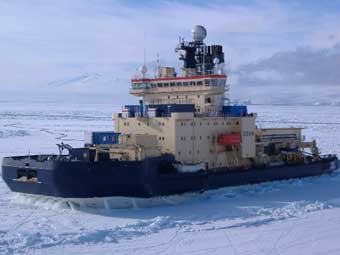 Arctic Research Expedition Sets Sail. Arctic Research Expedition Sets Sail. 31 July sees the beginning of the Swedish-American Arctic research expedition 'Arctic Ocean 2018' with 40 international researchers to be based and working on board the Swedish icebreaker Oden. The Swedish icebreaker will be moored to a moving ice floe, whilst the Arctic research expedition investigate the formation of the clouds over the Arctic as they play a very important in the Arctic climate. SciTech Europa
Explaining the Arctic Council Secretariat: Norms and Values (Part 1). Why does an organization undertake a reform, despite having been resistant to change in previous years? And why does it choose a reform that contradicts its original loose structure without implementing further reforms that would make it a more formal, treaty-based organization? These questions arise in the case of the establishment of the Arctic Council Secretariat in 2013. This paper aims at explaining the reasons for this specific and rather surprising reform. The Arctic Council (AC) was created in 1996 as a high-level intergovernmental forum for the coordination of Arctic politics by the "Arctic Eight." Its main aim is the promotion of "cooperation, coordination and interaction among the Arctic states, with the involvement of the Arctic indigenous communities and other Arctic inhabitants on common Arctic issues." While becoming an increasingly important actor in Arctic affairs by facilitating regional cooperation, the Council's status as a high-level forum persists. It does not have the legal status of an international organization and its institutional capacity is limited. The Arctic Institute
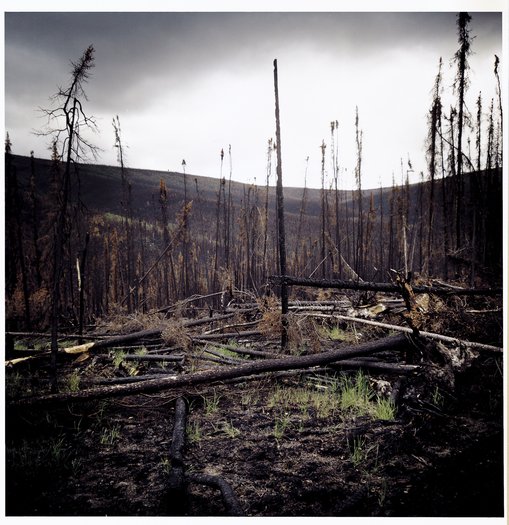 EU Nations Help Sweden as Wildfires Rage Above Arctic Circle. EU Nations Help Sweden as Wildfires Rage Above Arctic Circle. Sweden is fighting its most serious wildfires in decades - including blazes above the Arctic Circle - prompting the government to seek help from the military, hundreds of volunteers and other European nations. As of Friday, more than 50 blazes were torching forests, mostly in central and western Sweden but also in the North, above the Arctic Circle, and on the Baltic Sea island of Gotland. CBC News
|
|
Future Events
Seeking Comment: Principles for Conducting Research in the Arctic, July 31, 2018 (Webinar). The Interagency Arctic Research Policy Committee (IARPC) is seeking comment from the public on the draft newly revised Principles for Conducting Research in the Arctic. The Principles are directed at federally-funded researchers, though they may be useful to academic, state, local, and tribal researchers in the Arctic. Attend our listening session on July 31 at 11 AM Alaska / 3 PM Eastern to learn more and submit your comments: here.
More than 750 participants generally register and
participate in each Congress, and more than 400 scientific papers or posters are usually presented.
UArctic Congress 2018, September 3-7, 2018 (Oulu and Helsinki, Finland). The UArctic Congress 2018 will bring together key UArctic meetings and a science conference into one single gathering, including business meetings of the Council of UArctic, Rectors' Forum, Student Forum, and Thematic Networks & UArctic Institutes Leadership Team. The Congress is an integral part of the Finland's Arctic Council chairmanship program, and open to the public. The event will highlight the themes and priorities of the Finnish chairmanship, including the goals of the United Nations' 2030 Agenda for Sustainable Development, and the Paris Agreement under the UN Framework Convention on Climate Change.
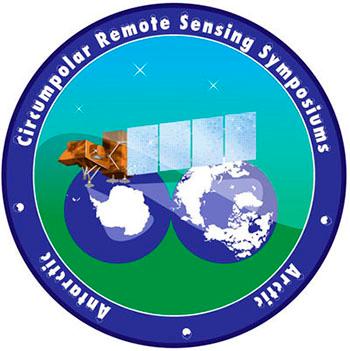
Scientific Exploration of the Arctic and North Pacific (SEA-NorP), September 25-27, 2018 (Mt. Hood, Oregon USA). This workshop will include discussion of hypotheses that can be tested by scientific drilling in the region, the technology necessary to achieve those goals, ideal sites for drilling based on existing data, and where additional site survey data is needed. The goal of the workshop organizers is that multiple proposals will be initiated at the workshop, both for full cruise legs and for shorter, targeted expeditions around the following themes: ocean gateways, geohazards, volatile cycling, ice histories at transition zones, biosphere and climate.
** New this week ** Polar Law Symposium (11th annual), October 2-4, 2018 (Tromsø, Norway). This symposium brings together established scholars and post-doctoral and doctoral researchers from all across the world to share research in the fields of polar law and policy. Leading experts are invited to give keynote lectures. A history of the symposium is here, news about it is here, and registration is here.
The second Arctic Biodiversity Congress is hosted by the Conservation of Arctic Flora and Fauna (CAFF), the biodiversity working group of the Arctic Council, and the Ministry of the Environment, Finland. The second Arctic Biodiversity Congress will build on the success of the first Congress, held in 2014 in Trondheim, Norway, and will bring together scientists, policymakers government officials, Indigenous representatives, Traditional Knowledge holders, industry, non-governmental organizations, and others to promote the conservation and sustainable use of Arctic biodiversity.
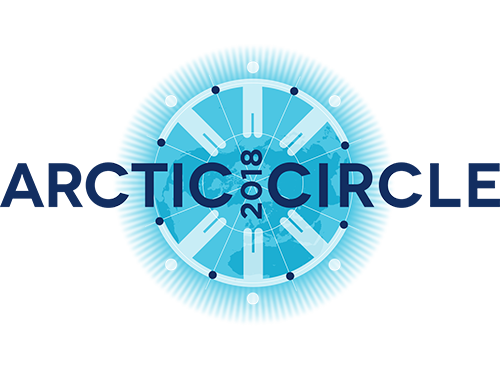 Arctic Circle Assembly, October 2018 (Reykjavik, Iceland). The annual Arctic Circle Assembly is the largest annual international gathering on the Arctic, attended by more than 2000 participants from 60 countries. It is attended by heads of states and governments, ministers, members of parliaments, officials, experts, scientists, entrepreneurs, business leaders, indigenous representatives, environmentalists, students, activists and others from the growing international community of partners and participants interested in the future of the Arctic. Arctic Circle Assembly, October 2018 (Reykjavik, Iceland). The annual Arctic Circle Assembly is the largest annual international gathering on the Arctic, attended by more than 2000 participants from 60 countries. It is attended by heads of states and governments, ministers, members of parliaments, officials, experts, scientists, entrepreneurs, business leaders, indigenous representatives, environmentalists, students, activists and others from the growing international community of partners and participants interested in the future of the Arctic.
Arctic Science Forum Associated with the 2nd Arctic Science Ministerial, October 25, 2018 (Berlin, Germany and via webcast). How vulnerable and how resilient are nature and the people of the Arctic region? How well do we understand the regional and global dynamics which are driving change in the Arctic? What impact will change in the Arctic have on us? These and other questions are the focus of this two-day conference. It will take interdisciplinary research in the Arctic to gain an understanding of past and future processes - a complex and cost-intensive venture. This makes an international network of Arctic research so important for delivering better results. Cooperation in research, the exchange of data, collaborative observation and monitoring schemes - international cooperation is imperative in research on the Arctic. Only the Science Forum on October 25th will be webcast.
American Geophysical Union Fall meeting, December 10-14, 2018 (Washington, DC USA). The AGU 2018 Fall Meeting will mark another dynamic year of discovery in Earth and space science, serve as the advent of AGU's Centennial year, and provide a special opportunity to share our science with world leaders in Washington, D.C. As the largest Earth and space science gathering in the world, the Fall Meeting places you in the center of a global community of scientists drawn from myriad fields of study whose work protects the health and welfare of people worldwide, spurs innovation, and informs decisions that are critical to the sustainability of the Earth.
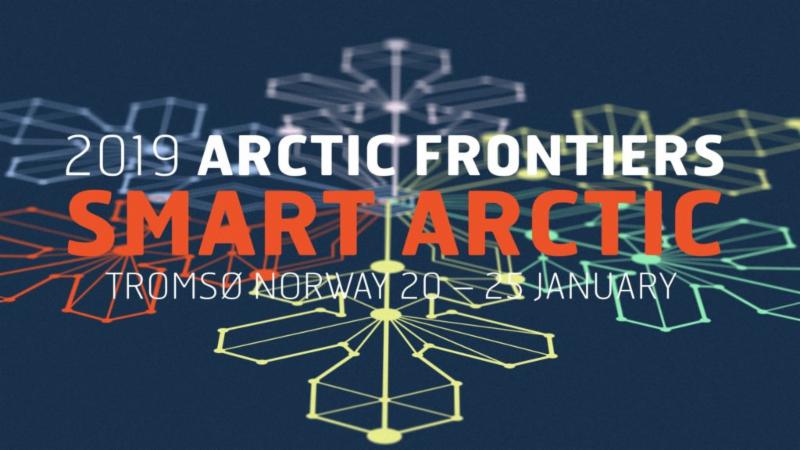 started out in 2006 assembling the first global scientific conference on economic, societal and environmental sustainable growth in the north. In January 2019, the hosts will arrange the 13th conference with the theme "Smart Arctic". The conference has a pan arctic perspective and builds new partnerships across nations, generations and ethnic groups. Arctic Frontiers provides a forum for dialogue and communication between science, government and industry in the Arctic. In 2019, the Arctic Frontiers plenary program will have five main sessions with the following tentative working titles: State of the Arctic, Blue Growth, Smart Solutions, Bridging the gap and Arctic business prospects. Following the plenary, we will organize an abstract driven science program addressing Plastics in the Ocean, the Future of Governance and Handling Vulnerability in Arctic Ecosystems, State of the Arctic and A Smart Arctic Future.
|
|

  
4350 N. Fairfax Drive, Suite 510
Arlington, VA 22203, USA
External links in this publication, and on the USARC's World Wide Web site ( www.arctic.gov) do not constitute endorsement by the US Arctic Research Commission of external Web sites or the information, products or services contained therein. For other than authorized activities, the USARC does not exercise any editorial control over the information you may find at these locations. These links are provided consistent with the stated purpose of this newsletter and the USARC Web site.
|
|
|
|
|
|
|
|
|
 BOEM Scientist Explores Island Near Pole With International Group: The 2018 OUTREACH Expedition. When Dr. Guillermo Auad, a senior scientist in BOEM's Environmental Studies Program, had the chance to travel to a remote island in Arctic waters near the North Pole this past June, he didn't waste any time packing. Even after his graduate studies and research and teaching career at Scripps Institution of Oceanography, followed by eight years working at BOEM, he had not envisioned this experience after 15 years of leading and conducting many research projects in the tropical and subtropical Pacific Ocean. Bureau of Ocean Energy Management
BOEM Scientist Explores Island Near Pole With International Group: The 2018 OUTREACH Expedition. When Dr. Guillermo Auad, a senior scientist in BOEM's Environmental Studies Program, had the chance to travel to a remote island in Arctic waters near the North Pole this past June, he didn't waste any time packing. Even after his graduate studies and research and teaching career at Scripps Institution of Oceanography, followed by eight years working at BOEM, he had not envisioned this experience after 15 years of leading and conducting many research projects in the tropical and subtropical Pacific Ocean. Bureau of Ocean Energy Management New Dates for Ancient Arctic Fibers. It had been previously believed that the ancient Dorset and Thule peoples of the Arctic learned to spin yarn from the Vikings who arrived in Newfoundland some 1,000 years ago, but according to a Canadian Press report, new radiocarbon dates suggest that pieces of yarn recovered from Baffin Island and the Ungava Peninsula could be much older. Gorill Nilsen of Tromsø University developed a way to cleanse the Arctic fibers of the seal and whale oils that had made them impossible to radiocarbon date in the past. The new tests indicate the pieces of yarn were crafted by Arctic peoples between 500 and 1,000 years before the Norse arrived in the New World. Archaeology
New Dates for Ancient Arctic Fibers. It had been previously believed that the ancient Dorset and Thule peoples of the Arctic learned to spin yarn from the Vikings who arrived in Newfoundland some 1,000 years ago, but according to a Canadian Press report, new radiocarbon dates suggest that pieces of yarn recovered from Baffin Island and the Ungava Peninsula could be much older. Gorill Nilsen of Tromsø University developed a way to cleanse the Arctic fibers of the seal and whale oils that had made them impossible to radiocarbon date in the past. The new tests indicate the pieces of yarn were crafted by Arctic peoples between 500 and 1,000 years before the Norse arrived in the New World. Archaeology Arctic Research Expedition Sets Sail. 31 July sees the beginning of the Swedish-American Arctic research expedition 'Arctic Ocean 2018' with 40 international researchers to be based and working on board the Swedish icebreaker Oden. The Swedish icebreaker will be moored to a moving ice floe, whilst the Arctic research expedition investigate the formation of the clouds over the Arctic as they play a very important in the Arctic climate. SciTech Europa
Arctic Research Expedition Sets Sail. 31 July sees the beginning of the Swedish-American Arctic research expedition 'Arctic Ocean 2018' with 40 international researchers to be based and working on board the Swedish icebreaker Oden. The Swedish icebreaker will be moored to a moving ice floe, whilst the Arctic research expedition investigate the formation of the clouds over the Arctic as they play a very important in the Arctic climate. SciTech Europa  EU Nations Help Sweden as Wildfires Rage Above Arctic Circle. Sweden is fighting its most serious wildfires in decades - including blazes above the Arctic Circle - prompting the government to seek help from the military, hundreds of volunteers and other European nations. As of Friday, more than 50 blazes were torching forests, mostly in central and western Sweden but also in the North, above the Arctic Circle, and on the Baltic Sea island of Gotland. CBC News
EU Nations Help Sweden as Wildfires Rage Above Arctic Circle. Sweden is fighting its most serious wildfires in decades - including blazes above the Arctic Circle - prompting the government to seek help from the military, hundreds of volunteers and other European nations. As of Friday, more than 50 blazes were torching forests, mostly in central and western Sweden but also in the North, above the Arctic Circle, and on the Baltic Sea island of Gotland. CBC News
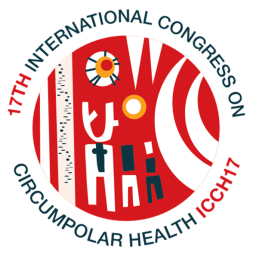 year in different locations in the circumpolar area and represent the largest scientific meetings worldwide on circumpolar health. The ICCH congresses serve as the primary source of information exchange and scholarly communication in issues relating to circumpolar health.
year in different locations in the circumpolar area and represent the largest scientific meetings worldwide on circumpolar health. The ICCH congresses serve as the primary source of information exchange and scholarly communication in issues relating to circumpolar health. 


